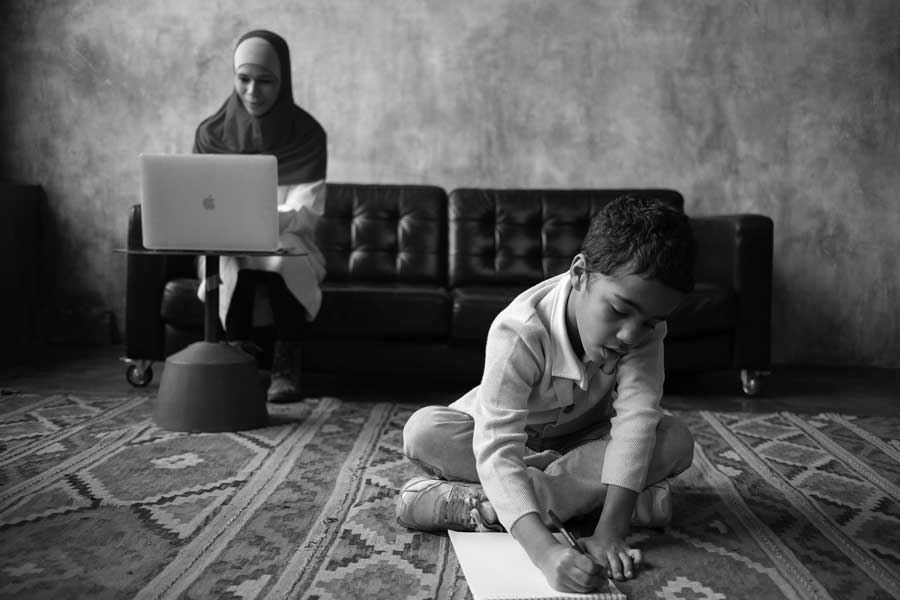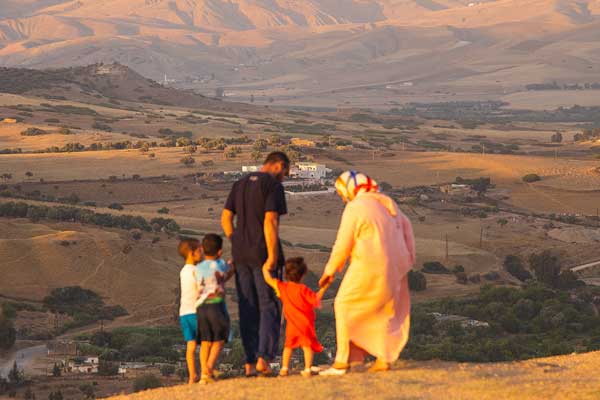As we move into the next decade, we face the ritual reviewing of the worn and torn pages of the diary of our lives before we turn a new page. We will reflect on our achievements and failures. And then we will approach that ever dreaded, yet paradoxically inviting task of setting new goals. As Muslims we face the new decade with a bittersweet hope; expectations of new triumph in the knowledge that with the passing of each decade we are moving closer to the Final Goal – the day when we will stand in front of our Creator.
Getting down to the more mundane, yet essential issues of the new decade, we come to the question of the role of women in Islam. Sisters, it is time to redefine our attitudes and ideas. Let’s try to streamline ourselves and move on by throwing out old misconceptions that have been slowing us down.
Naturally, there are exceptions where Muslim women have not attained the status that Allah Almighty has ordained for them. And naturally, these exceptions are exploited and stigmatized by non-Muslims.
The feminist movement of our society is coming to a major crisis as women in the West are deciding that they are tired of pretending that they are men. At the same time, many Muslim women are deciding that they are tired of pretending they are Western women. Yet they are also frustrated with the typical stigma of being the “oppressed” Muslim woman. The recent controversy over the “20/20” commentary on Pakistani women explains our feelings of uncertainty about our position in the society.
Most of us will agree that IF and WHEN horrifying excesses take place against Muslim women> they do so because of the twisted nature of the individuals involved and have nothing to do with the Islamic law. There is absolutely no correlation, let alone causation, between the Islamic law and oppression of women. Almighty Allah gave us these laws in order to prevent social injustices. Over generalizations are dangerous and unacceptable. Shall we use recent American statistics on crimes to conclude that the democratic system incites people to commit acts of violence?
As Muslim women of North America we have to find ways to deal with these misconceptions. The name of Islam must be kept free of all taints and tarnish. The question is: why are Muslim women considered the most op pressed when non-Muslim women across the globe are going through a worse experience?
The role of women in Islam is really no different from other women. Muslim women strive to achieve religious and worldly education, to support the social network of the community, to maintain harmony and growth with their immediate and extended family, to achieve personal goals, and above all, to work for religious piety. Is this really in contrast with other societies, cultures, and religious groups?
However, methodology is not only different, but also misunderstood. In most of the Western world, women are analogous to feathers, they blow where the wind blows them. They have freedom in the sense that they can fly any way with no restrictions. However, their flight is usually initiated by the directing breezes of environmental factors. When they finally land, they are often fettered and ravaged by the harshness of society.
In contrast, a Muslim woman is treated as a precious jewel. As a child she is polished and perfected for her performance as an adult. When she attains maturity, she is protected and guarded like a treasure. Those factors are not to be considered restrictions, rather they are used to enhance her position. Thereafter, her presence commands respect rather than dismissal or neglect. She establishes her own niche in life rather than aspire for positions of others. When she shines in the glow of success, she has a complete social support Network to enjoy her happiness. Her experiences are progressive rather than regretful. She be comes skilled in cooperation and harmony rather than compliance. She is a woman with the status and position that Allah Almighty has given her and her alone.
Naturally, there are exceptions where Muslim women have not attained the status that Allah Almighty has ordained for them. And naturally, these exceptions are exploited and stigmatized by non-Muslims.
However, we must be tolerant of others’ perception of our religion if we want to change their views. A famous saying of social psychologists is: We are they to them. Our opinions are as wrong to them, as theirs are to us. As long as we have no mutual tolerance, there can be no successful communication, nor a proper representation of Islam and its real ideals. The way we fend off an attack on Islam is not through vehement condemnation of Westerners. It is said that a true warrior will not harm an enemy who refuses to fight. I believe that what we need most to correct misconceptions about Islam is talk to our adversaries and explain to them why we believe in some things. and reject others. In school, I was never able to tolerate discussions about Islam because they always ended in frustration and a competition to see which faith would score more points. When I stopped considering non-Muslims my deadly opponents, then people whom I spoke to, had no choice but to listen to my point of view as well.
Allah is the Ultimate and Glorious Protector of our religion. Our duty as Muslim women in North America is to learn and teach with gentle understanding. Our aim is to create a peaceful environment, not a threatening one.
Let us take a first step of the ’90s in removing stigma of the “oppressed Muslim women” by refusing to be threatened or upset. We don’t need anyone to tell us what our status or position is. But we do need to be persistently patient in telling the misinformed and the mis guided that we enjoy a good life under Islam.





